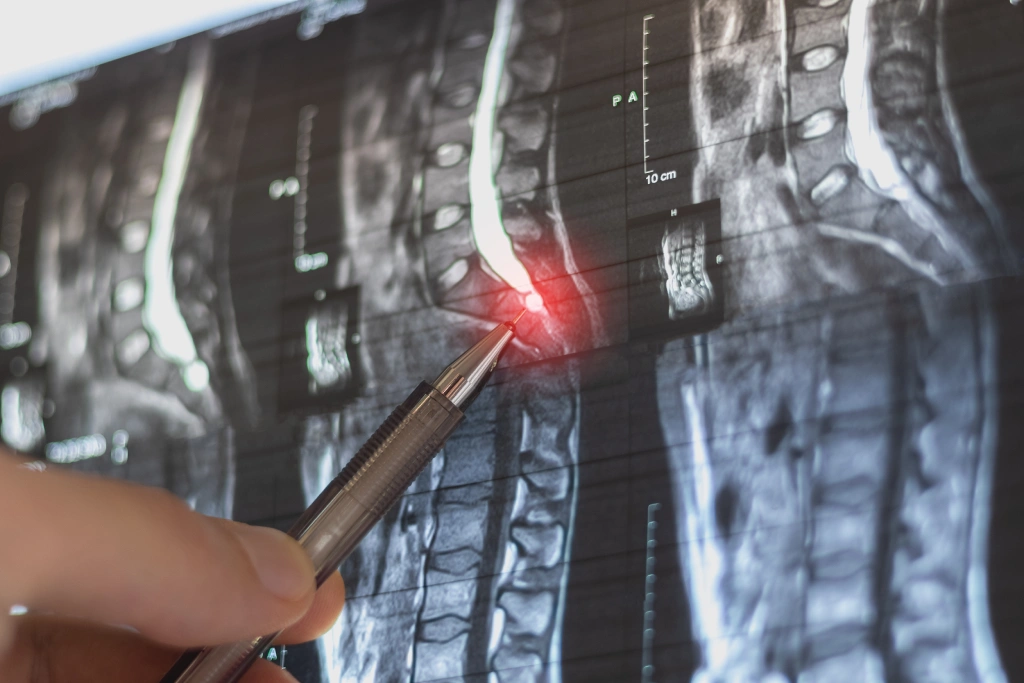December 13, 2024 | personal injury Claims
The Role of Independent Medical Experts in Your Alberta Personal Injury Claim
Table of Contents
During a personal injury case, it is common for your lawyer to request that you visit a medical practitioner (or more than one) to establish the extent of the injuries you have suffered due to someone else’s negligence. These experts are often very useful for building up your claim and offering evidence to support it.
An independent medical examination (IME) by such “independent medical experts” (sometimes also shortened to IME) will help your lawyer objectively determine the past, present, and future health implications of your injuries. Additionally, these examinations may help determine liability, causation, loss of future income, and future health costs. They may also be used to provide treatment recommendations. Importantly, your lawyer will use the findings from any IMEs you have had to negotiate an out-of-court settlement in your legal matter.
If your matter proceeds to trial, these medical practitioners are likely to be called as experts to give objective evidence in your case. The medical practitioner will rely on the IME report that they produced following your examination to back up or illustrate the evidence that they give to the court.
There are several types of IMEs that may be conducted based on what your lawyer has determined are your injuries in the case.
Per the “I” in IME, any examination that takes place must be with a medical practitioner who has no previous relationship with you. This is because the court wants this evidence to be untainted by a medical practitioner’s relationship with you.
The independent medical practitioner will review your past medical records, diagnostic imaging (like X-rays), and reports from any other examinations you attended. These will give them the background to perform a well-informed, thorough evaluation of you.
If it is a physical medical examination, then it is routine for the practitioner to perform a physical examination at the time of the appointment. For psychologists, psychiatrists, and neuropsychologists, you may be asked to perform a battery of mental tests.
On occasion, an independent medical professional may order imaging to help them better assess what they think is happening with your functioning. This can help them understand an underlying injury that may not be readily apparent or demonstrated adequately by their testing.
It is very likely that they will ask you a number of questions, some of which may be personal, to help them understand the causes and effects of your injuries.
Types of Independent Medical Practitioners Relevant To Your Accident Claim
There are many kinds of medical practitioners who could be relevant to your circumstances. Some of them are:
Physiatrist
A physiatrist is a medical doctor (MD) who practises in the area of physical therapy, pain management, and musculoskeletal function. The specialization of physiatry focuses on non-surgical options for pain management, treatment, and recovery.
Orthopedist
An orthopedist is a medical doctor (MD) who is a surgeon working to address pain and mobility issues caused by a vehicle crash or a slip and fall incident. Often, in addition to the treatments considered by a physiatrist, an orthopedic surgeon will consider surgical interventions to treat your injuries. They can also offer a prognosis on your future treatments and recovery strategies.
As can be seen, there is substantial overlap in the roles of physiatrists and orthopedists.
Psychiatrist
A psychiatrist is a medical doctor who has special additional training in the areas of mental illness. Often, as a result of a personal injury, a person can suffer from mental injuries in addition to the physical ones they are experiencing.
A psychiatrist, acting in the capacity of an independent medical examiner, will determine the mental injury that has been caused by the physical injury and the circumstances surrounding the events leading to the personal injury. Often, due to those circumstances, along with the resulting physical injury, a person may suffer from chronic pain, chronic fatigue, sleep disruption, nightmares, post-traumatic stress disorder (PTSD), depression, anxiety, and combinations of these. Some of these injuries are not purely physical in nature.
Psychologist
A psychologist is a medical practitioner who specializes in the areas of emotional well-being and behaviour. A psychologist, acting as an IME, will be able to report on these as they relate to the personal injury victim and their impact on the personal injury victim’s life.
Neuropsychologist
A neuropsychologist is an expert in determining if a person has suffered from a traumatic brain injury, a stroke, or other neurodegenerative disorders. These assessments are extremely valuable when determining the effects of a car accident or other injury-causing incident on a person’s brain and brain function.
These injuries can often be indicated by neurological deficits, magnetic resonance imaging (MRI), and overall behaviour changes in personal injury victims. A concussion or concussive symptoms may also be an indicator of these injuries.
Testing can be carried out by the neuropsychologist to determine the extent of the injury and its impact on thinking and body motor controls. These tests may include written questionnaires and imaging testing.
Occupational Therapist
An occupational therapist (OT) is a medical specialist who can examine and administer a number of daily living tests. An occupational therapist will often rely on IMEs from the previously mentioned professionals to assist in their evaluation of the personal injury client.
An OT can make the following reports:
- Functional Capacity Evaluations (FCE)
- A functional capacity evaluation assesses a personal injury client’s physical ability when performing work-related tasks.
- Vocational Assessment (VA)
- A vocational assessment is used to evaluate a personal injury client’s capacity and ability to return to work.
- Occupational Therapy Assessment
- An occupational therapy assessment is used to determine a personal injury victim’s ability to perform the activities of daily living.
Some questions that an OT may ask or test are:
- Can the injury victim still groom themselves?
- Are they able to cook for themselves and clean their residence?
- Can they get to work by themselves?
- What level of assistance, training, or coaching does the injury victim need to function and succeed in life?
- How does that level of functionality compare to their previous level of functionality?
The Supreme Court of Canada, in Andrews vs. Grand & Toy Ltd., 1979 2 SCR 229, stated as follows:
“In theory a claim for the cost of future care is a pecuniary claim for the amount which may reasonably be expected to be expended in putting the injured party in the position he would have been in if he had not sustained the injury. Obviously, a plaintiff who has been gravely and permanently impaired can never be put in the position he would have been in if the tort had not been committed. To this extent, restitutio in integrum is not possible. Money is a barren substitute for health and personal happiness, but to the extent within reason that money can be used to sustain or improve the mental or physical health of the injured person it may properly form part of a claim.”
While this statement really refers to the future cost-of-care component of personal injury lawsuits, it shows why the assessment provided by these medical professionals is extremely important in determining the damages suffered and the amount recoverable in a personal injury matter.
In addition to the future cost of care and general damages (non-pecuniary damages) impact that are outlined in the above statement from the court, loss of earning capacity is a huge portion of personal injury damages. An Occupational Therapy Assessment, as recommended by your personal injury lawyer, directly addresses that head, or category, of damages.
Loss of earning capacity is the loss of your ability to advance in your career as you did prior to your personal injury. It is the loss of that potential, caused by the wrongdoing of the defendant, that has caused you financial damage.
Madam Justice Colleen Kenny in the Court of Queen’s (now King’s) Bench of Alberta in the case of Chisholm vs. Lindsay, 2012 ABQB 81, stated:
“The test is whether there is a real and substantial possibility that the Plaintiff has been rendered less capable of earning an income from many sources of employment, is less marketable to potential employers, and is less able to take advantage of opportunities that may become available.”
Economist
Although not a medical professional, an economist is often used to provide your personal injury lawyer and the court with financial information and estimates of your losses due to the motor vehicle collision or other injury-causing incident.
The losses, and potential losses, set out by the experts and by your personal injury lawyer at Preszler Injury Lawyers are complicated and need to be correctly quantified. The economist will take all of the information provided by the above professionals and make learned estimates of the losses in a financial sense. Experts in “crunching numbers” and providing predictions, an economist quantifies in easy-to-understand terms and amounts the overall value of the loss that you are a victim of in your personal injury case.
The economist provides your lawyer with a number or a set of numbers to present to the insurance company’s lawyer or to the court as an amount that you should receive for your losses, except general damages, which cover non-concrete losses such as pain and suffering. Estimating general damages is left to the learned discretion of your lawyer. Please note that this is not necessarily the amount of compensation you will receive, as that will depend on the outcome of negotiations with your insurer or a trial.
Other Uses of IMEs By Your Personal Injury Lawyers & Insurers
There are other uses of IMEs besides those planned by your personal injury lawyer. Your insurance company may order IMEs to determine if you are eligible or continue to be eligible for benefits under their insurance plan. Your insurance company may send you to their choice of IME doctor to decide your eligibility, in their opinion, for further benefits, including disability benefits, as well as your ability to go back to work without your consent or agreement.
It should be easy to see that, if your insurance company is doing this, they are not doing things in your best interest. We at Preszler Injury Lawyers take a very skeptical view of the reports generated by the insurance company’s doctor and will often dispute them on your behalf to ensure that you receive the disability benefits that you have paid for and that you are entitled to.
Another instance where your personal injury lawyer isn’t the one ordering your IME is when the insurance company, defending your personal injury lawsuit, obtains its own expert to make its own independent evaluation of your injuries. These are instances where we carefully control the process of that examination to ensure it is done fairly, objectively, and properly. The healthcare practitioners are bound by professional rules that we, as your legal counsel, will monitor their compliance with.
The Importance of Cooperation In Your IMEs
IMEs are scheduled months in advance. Often, there is a significant financial charge for missing these exams. If either your lawyer or your insurer has scheduled one, it is crucial to your claim that you attend.
It is important that you arrive on time for your IME appointment. IME doctors are generally extremely busy, and as such, the doctor may not be able to complete your report if you fail to attend on time.
During the examination, it is required that you answer the questions of the medical practitioner completely. It is important that you express your pain and day-to-day struggles to the examiner. They are then in a position to examine a particular body part, body mechanism, or thought process to write their report and give the proper diagnosis/prognosis.
When the IME practitioner asks you to perform a task, it is essential that you attempt that task. They are doing tests to determine your personal functionality. Refusal to do what they ask does not provide the data that they need to write a proper report. Consequently, your ability to cite their report as evidence in your personal injury lawsuit will be weaker.
While you are performing the tasks asked of you, ensure that you express any discomfort or inability to do so. IME writers will often write in their reports that a “person was cooperative,” which is essential to assuring the opposing side that you tried to perform your best in the test.
Contact Our Personal Injury Lawyers If You Need Legal Help
Our team at Preszler Injury Lawyers has successfully handled thousands of personal injury cases, ranging from long-term disability (LTD) claims to motor vehicle accidents, dog bite injuries, slip and falls, and more, for our clients. We welcome the opportunity to help you resolve your injury claim as well.
If you have been asked to undergo an independent medical examination, please call us toll-free 24/7 at 1-888-494-7191 to set up a free initial consultation with one of our personal injury lawyers.
Written by Norm Galarneau
Personal Injury Lawyer
Lawyer Norm Galarneau’s practice focuses on personal injury claims, including motor vehicle accident claims, slip and fall claims, and long-term disability claims.
More personal injury Topics
Here’s more information on personal injury related topics that we think you might find helpful.

personal injury
|
September 3, 2025
Understanding Spinal Cord Injuries
Spinal cord injuries can be life-altering. Because the spinal cord carries signals between the brain and the rest of the body, damage to it often…

personal injury
|
September 3, 2025
What Is Post-Concussion Syndrome?
Most people think of a concussion as a temporary injury. With rest and proper care, symptoms often improve within a few weeks. But for some,…

personal injury
|
June 5, 2025
Catastrophic Injuries in Alberta
Catastrophic injuries are very serious injuries that impose lasting consequences. For legal purposes, catastrophic injuries are defined in Alberta as permanently damaging to the victim’s…
Speak With Our
Legal Team for FREE
Find Out if You Have a Case in Under 5 Minutes
Speak to a Lawyer Now!
We’re here to help.
